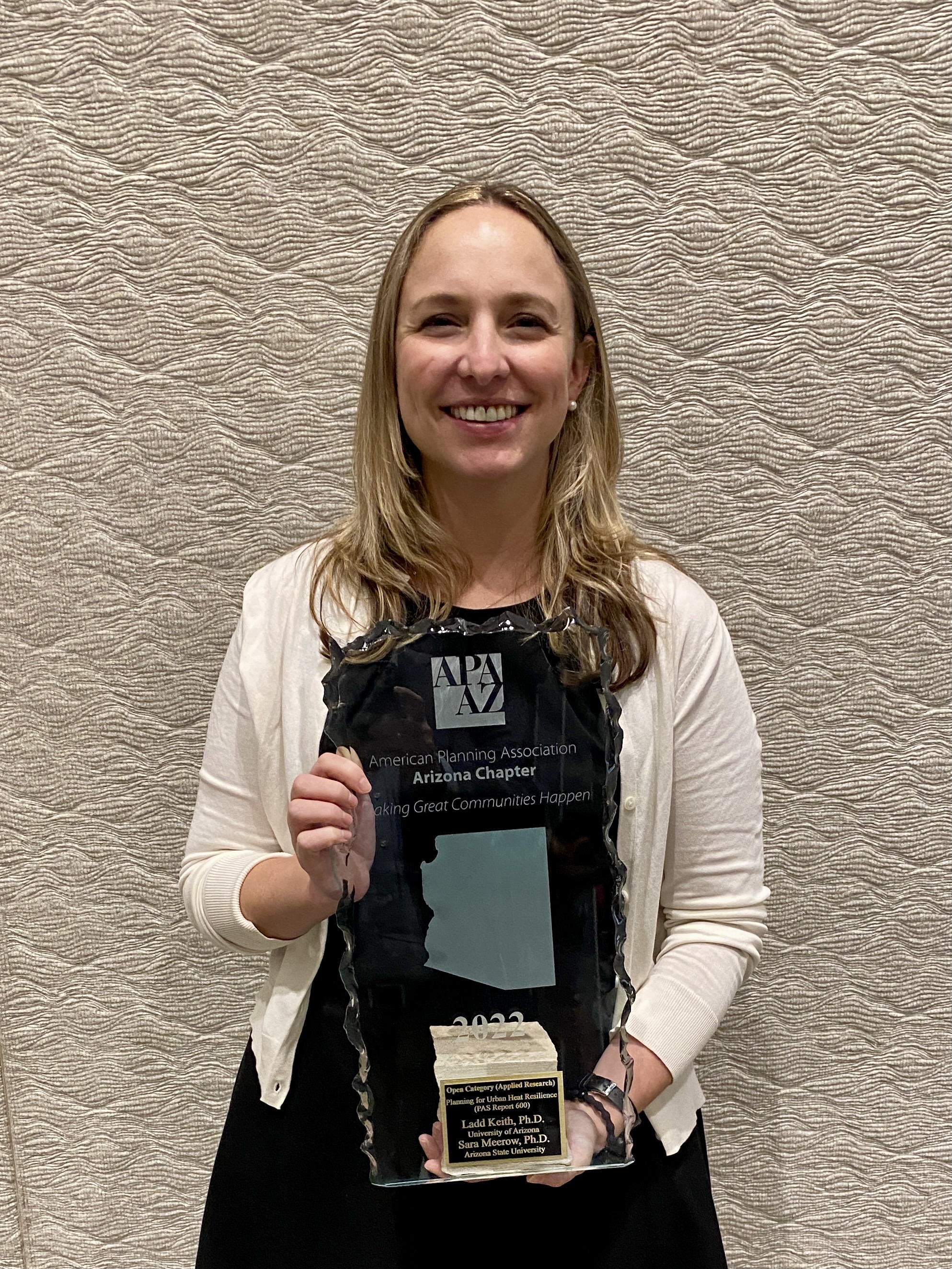Sara Meerow, associate professor in Arizona State University's School of Geographical Sciences and Urban Planning and affiliate faculty member of ASU’s Urban Climate Research Center, was selected as a recipient of the Arizona chapter of the American Planning Association's Open Category Award for her research report “Planning for Urban Heat Resilience.”
The award recognizes outstanding efforts in planning and planning leadership from individuals that build awareness of the field's importance and whose work helps to cultivate thriving communities across Arizona.
Meerow’s research conducted in collaboration with Ladd Keith of the University of Arizona was published by the American Planning Association as a Planning Advisory Service (PAS) report. It is the first PAS report in the publication’s 70-year history to focus on planners' growing role to help mitigate and manage rising heat hazards.

Sara Meerow
“Heat is a deadly and growing threat for communities everywhere, yet has traditionally received less attention than other more visible hazards,” said Meerow, whose research focuses on making cities more resilient to climate change. “In most places, existing efforts to address heat are not well coordinated. With this report, we hope to provide communities with a comprehensive framework and practical strategies for becoming more resilient to heat.”
The report breaks down the complexities of urban heat resilience, including heat contributors like climate change and the urban heat island; explains important concepts related to how humans experience heat; and describes key organizations critical to governing urban heat at the local, state and federal levels.
Meerow and Keith also provide detailed guidance on how communities can help solve these issues through specific heat mitigation and management strategies.
As outlined in the report, heat mitigation strategies that cities can implement include: changing the way the built environment is planned and designed; incorporating more vegetation into urban environments; and reducing waste heat.
Potential heat management strategies that focus on protecting people from heat that cannot be mitigated, include: establishing dedicated cooling centers where people can seek shelter and assistance; ensuring communities have access to reliable energy and indoor cooling; and requiring certain protections for people working outdoors in hot weather.
“It's really nice that our (research) is being recognized by the American Planning Association Arizona Chapter as it represents a collaboration between faculty from two Arizona urban planning schools to create guidance for planners nationwide,” said Meerow. “This award shows that planners in the state recognize the importance of planning for urban heat resilience.”
Top image courtesy Pixabay.
More Environment and sustainability

A world full of plastic ... not fantastic
Editor’s note: This is the seventh story in a series exploring how ASU is changing the way the world solves problems.When Timothy Long’s kids were growing up, he never let them toss…

Team wins $10M XPRIZE Rainforest competition for novel solution
Several Arizona State University experts are on a team that created a new way to put a price on the rainforest in order to save it, and on Friday they won the top award in the prestigious $10 million…

ASU President Michael Crow named to TIME100 Climate list
Arizona State University President Michael Crow has been named to the 2024 TIME100 Climate list of leaders and innovators driving real climate action.The list includes leaders across a range of…
